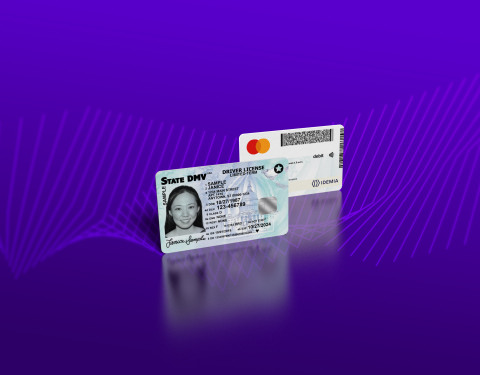Identity Review | Global Tech Think Tank
Keep up with the digital identity landscape.
The future of digital identity is already here. IDEMIA, a producer of physical driver’s licenses, has announced the Converged Card solution, a driver’s license that has a payment credential backed by Mastercard.
The Converged Card will enable a significant shift in how American citizens receive government benefits from state and federal governments. Through the payments feature, users will be able to directly receive government assistance, whether that’s in the form of unemployment benefits, tax refunds or housing assistance.
Megan Heinze, president of Financial Institutions for North America at IDEMIA, emphasizes that Converged Card will enable a new level of financial inclusion for citizens who rely on government assistance. “This card will address the foundational issues of financial inclusion,” said Heinze, “allowing all citizens to have access to financial services via a prepaid card, in an affordable and timely way, which will create a new and improved process to disburse state government funds.”

Streamlining access to government benefits has particular relevance during the COVID-19 pandemic. As part of the CARES Act that was signed into law by President Trump in March, American workers with incomes of less than $75,000 were eligible for a one-time $1200 stimulus check and up to four months of increased weekly unemployment benefits.
But despite both Democrats and Republicans agreeing on the necessity of the CARES Act (it passed by voice vote in the House and unanimously in the Senate), the actual disbursement of funds faced numerous challenges. Florida was ground zero for difficulty in distributing the increased unemployment benefits. The state’s unemployment system requires users to upload complicated forms and has near-nonexistent customer support. Pre-pandemic, just 39% of those who applied for unemployment benefits in Florida actually received any payments, compared to 68% nationwide. During the first outbreak of COVID-19 in the United States, Florida’s unemployment system was overwhelmed with claims, causing massive delays in getting people the funds to which they were entitled to under the CARES act. With the Converged Card, governments could directly deposit funds to users, avoiding this bureaucratic process.
If IDEMIA is able to accomplish its vision of streamlining government transfers to citizens through its Converged Card, they will capitalize on two significant trends: the growth in federal spending and the need for government-sponsored digital identification. To capitalize on these trends, IDEMIA is also developing a purely digital driver’s license, which would allow a phone app to serve as a government-issued identifier and would have payment-receiving features similar to the Converged Card. Eric Jorgensen, the Director of the Arizona Motor Vehicle Division, which has partnered with IDEMIA, notes that “[The MVD] sees a massive opportunity for the convergence of identity and finance.” The Converged Card’s innovative combination of digital identity with payments may be the right solution to tackle one of America’s largest and most bureaucratic sectors: the government.
ABOUT THE WRITER:
Quinn Barry is a Tech Innovation Fellow from Stanford University covering the next generation of financial identity protection.